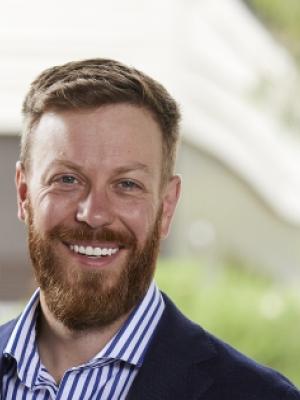A series of webinars created by the Hothouse at ANU, discussing the intersections between climate change, inequity, and human health. The focus is on actions that enable transformative change away from the harmful consumptogenic system to systems that promote good health, social equity and environmental wellbeing.
This episode featured Susan Park, Professor of Global Governance in Government and International Relations at the University of Sydney.
Do international grievance mechanisms work? These non-legal, non-binding mechanisms are increasingly used to provide recourse for people suffering environmental and social harm from internationally funded development projects. But, to date, there have been no studies to show how these mechanisms make a difference to people using them.
Susan's research examines whether international grievance mechanisms provide redress for the environmental and social impacts of international development projects, with implications for planetary health. The World Bank lends approximately $20 billion annually to developing states to fund energy, telecommunications, and infrastructure projects to address poverty and improve peoples’ lives. Yet development projects may have dramatic and irreversible environmental and social impacts: loss of lives, livelihoods, and land, a breakdown in community cohesion, species extinction, habitat loss, and irreparable damage to local ecosystems. Despite the World Bank’s Inspection Panel operating for 30 years, we still do not know how it – or any other international grievance mechanism – contributes to improving development conditions. Many people harmed by international development projects choose these non-legal international procedures to have their voices heard often because legal and political options may not be available to them. Indeed, around the world people put themselves in grave harm from state and corporate reprisal for speaking out to protect their environment.
Identifying the use of international grievance mechanisms for addressing injustice is imperative given the rise of conflicts from development projects globally and the increasing number of environmental ‘defenders’ being killed to protect themselves and their environment. International development practices are also contributing to the crossing of known ecological system boundaries globally, such as climate change, habitat loss, and species extinction, the outcome of which is likely to “surpass known experience and which alter …almost all human and natural systems” (UNDRR 2019: 32).
Susan presented uses of an eco-justice frame to analyse grievances against international development projects financed by Multilateral Development Banks (MDBs) to investigate whether they lead to improvements for people and ecosystems. An eco-justice approach combines the right of nature (to exist, repair, and regenerate) with environmental procedural rights for humans (to have access to information, to participate, and to have access to justice in environmental matters). Using an eco-justice frame for addressing grievances against development arguably can bring us closer to recognising both human and planetary health.
Event Speakers

Nick Frank
Nicholas Frank is a Laureate Research Fellow with the Planetary Health Equity Hothouse in the School of Regulation and Global Governance. Prior to this, he was an Associate Lecturer in the School of Politics and International Relations at the Australian National University. Nicholas specializes in the political economy of trade and investment governance.


